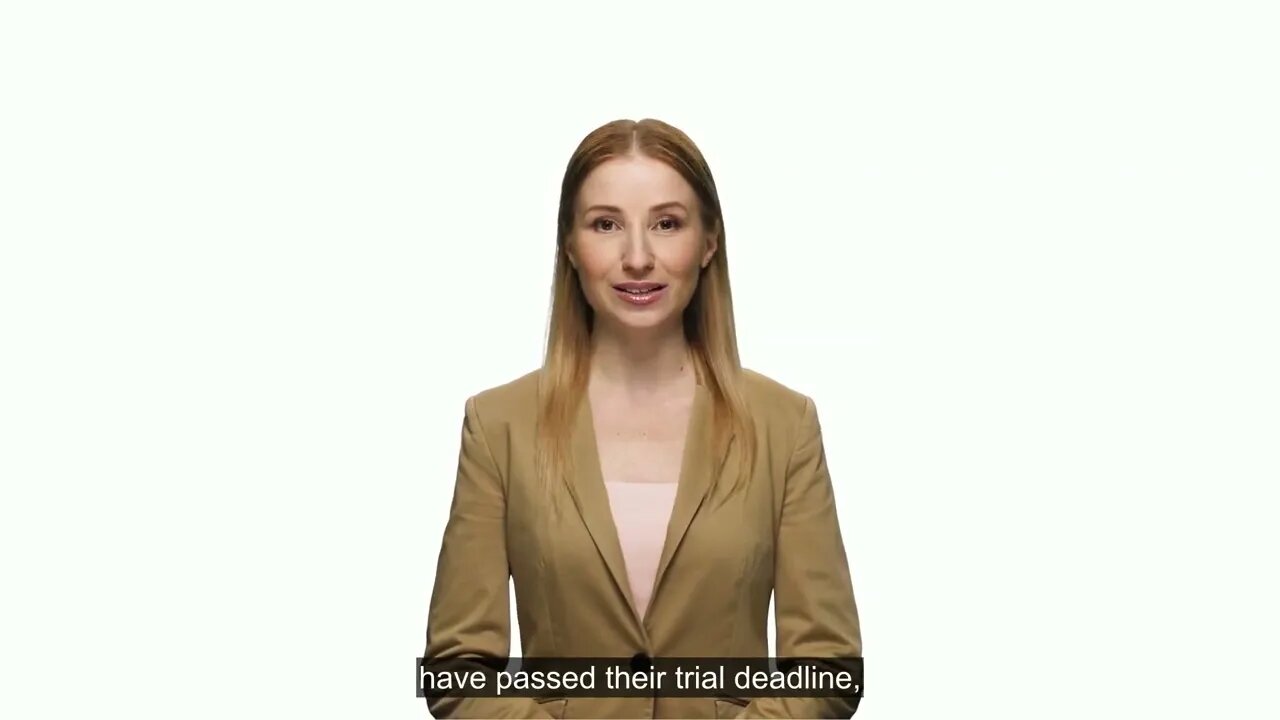Premium Only Content

"SF District Attorney Brooke Jenkins Transforms Crime Policies: An Analysis of Impact and Criticism"
San Francisco District Attorney Brooke Jenkins has implemented policies that have resulted in increased conviction rates, decreased diversion program referrals, and a rise in jail sentences. Jenkins, who assumed office in July 2022, has made her mark in the criminal justice system, especially with her commitment to shift direction from her predecessor, Chesa Boudin.
The data confirms that Jenkins is having a swift impact on criminal prosecution efforts and outcomes, especially considering that cases can take months or even years to resolve. These changes are most evident when it comes to drug crimes, for which arrest, charging, and conviction rates have climbed sharply. The changes are intended to decrease overdose deaths and reduce other harmful consequences of rampant drug use, but those reversals haven’t happened yet. Overdose deaths have climbed recently.
However, while the changes between the two district attorneys are in part driven by their policies, they are also impossible to disentangle from the COVID-19 pandemic’s impact on San Francisco's criminal justice system. Crime patterns shifted; social distancing measures forced a dramatic reduction in the jail population; and the Superior Court mostly stopped holding criminal trials, causing a case backlog hundreds of names long. Crime in the city has mostly reverted to pre-pandemic trends, but the low jail population and massive backlog — nearly 1,000 cases have passed their trial deadline, according to the Public Defender’s Office — have persisted.
After hitting lows near 25% in late 2021 and early 2022, the share of criminal cases ending in a jail or prison sentence began climbing following Jenkins’ appointment, hitting nearly 50% in March, more than any other month since April 2020. Charging and conviction rates have gone up for felony cases overall, while diversion rates — the share of cases resolved through programs serving as alternatives to jail or prison time — are down.
Despite these shifts, the city’s jail population hasn’t ballooned under Jenkins, hovering around 800 people, the status quo during most of Boudin’s tenure. That’s well below its pre-pandemic average of nearly 1,300.
In an interview, Jenkins said The Chronicle’s findings made sense given her commitment to shift direction from her predecessor, whom she had criticized as incompetent and overly lenient. She said under her leadership, attorneys have become more “thoughtful” about who they let participate in diversion programs.
“If you’re (a first-time nonviolent offender), sure, (diversion) might be appropriate for you,” she said. “If this is your fifth or sixth time around the bend, then we need to be arguing for something different.”
Jenkins added that her higher charging rates for felony cases likely stem from an increase in chargeable cases presented to her office. She said that San Francisco police have been presenting more arrests, with better-quality evidence, since she took over.
But representatives from the San Francisco Public Defender’s Office said that Jenkins’ policies — particularly her decreased reliance on diversion for drug cases — were both ineffective and harmful to their clients. Proponents of diversion programs believe they can change people’s lives by replacing punishment with resources, such as classes, drug rehabilitation, and connection to health and housing services.
San Francisco has long been unusual in its robust network of diversion programs, and in how many complex and felony cases it diverts. The city has used diversion since the 1970s and, in addition to programs for veterans and primary caregivers mandated by the state, has its own initiatives run by the District Attorney’s Office and the court system.
While more research remains to be done on the effectiveness of diversion, early research based in San Francisco showed promising results. In a 2022 study by the California Policy Lab, a nonprofit based out of UC Berkeley, people charged with felony crimes from 201
work cited
Neilson, Susie. "Brooke Jenkins has transformed San Francisco's crime policies. Here's what the data shows." San Francisco Chronicle, 29 Mar. 2023, https://www.sfchronicle.com/bayarea/article/Brooke-Jenkins-has-transformed-San-Francisco-s-17055469.php.
-
 LIVE
LIVE
Kim Iversen
2 hours agoTrump To SMUG Netanyahu: Let's Clear “All” Palestinians From Gaza! | RFK Jr, Tulsi Move On To Round Two
1,809 watching -
 30:25
30:25
Standpoint with Gabe Groisman
22 hours agoDemocrats Are Stalling Trump Appointments with Senator Rick Scott
952 -
 1:15:25
1:15:25
Glenn Greenwald
3 hours agoTulsi and RFK Jr. Approved by Key Senate Committees; Trump Meets Netanyahu: Wants to Cleanse Gaza; Pro-Palestinian Group Suspended at UMich | SYSTEM UPDATE #402
11.3K30 -
 LIVE
LIVE
The StoneZONE with Roger Stone
2 hours agoAnthony Fauci’s Brutal History Of Animal Torture Exposed! | The StoneZONE w/ Roger Stone
832 watching -
 1:18:26
1:18:26
Redacted News
4 hours agoBREAKING! USAID Created and Funded COVID-19 Virus and Bioweapons, RFK and Tulsi pass major hurdle
82.5K166 -
 50:54
50:54
Candace Show Podcast
4 hours agoBecoming Brigitte: Gaslighting The Public | Ep 1
134K143 -
 4:41:05
4:41:05
Right Side Broadcasting Network
9 hours agoLIVE: President Trump Holds Press Conference with Israeli PM Benjamin Netanyahu - 2/4/25
161K93 -
 LIVE
LIVE
Edge of Wonder
4 hours agoInception Is Real: How Ads Are Showing Up in Our Dreams
471 watching -

LFA TV
8 hours agoThe Trade War Ends | TRUMPET DAILY 2.4.25 7pm
3.2K2 -
 LIVE
LIVE
Quite Frankly
8 hours ago"Capitol Hill Headlines & The Utah Case" ft Lauren Conlin, The Zells 2/4/25
1,185 watching